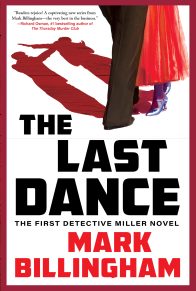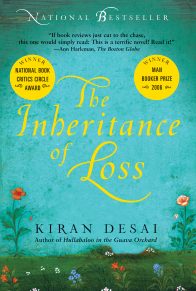1. The novel opens with an African and Caribbean proverb, “A little axe can cut down a big tree,” and a quote from Henry VI, “And many strokes, though with a little axe, / Hew down and fell the hardest-timber’d oak.” Who in this story is the little axe? Give examples from the novel to support your answers. What is the meaning of the title to you?
2. The novel deftly sheds light on the brutalities of life in the American West of the 1700s and the early 1800s. What was the impact of colonialism on the enslaved and oppressed peoples of Trinidad?
3. At the heart of Book of the Little Axe is the sweeping family saga of the Rendóns. Describe the family dynamic. Compare and contrast the siblings’ relationships with their parents. With each other. Why are some bonds stronger than others? Examine the way the author reveals Demas Rendón’s character throughout the novel. How did your opinion of him change? What is the significance of DeGannes to the Rendón family, and why does Rosa lie for him?
4. For headstrong and fiercely independent Rosa Rendón, America is meant to represent freedom and purpose but initially feels like punishment. How does she change during her time in America? List the ways Rosa challenges the preconceptions about a Black woman in the early eighteenth century.
5. What effect does Creadon Rampley’s arrival have on the Rendón family? What is similar and what is different about his connections with Rosa, Eve, and Demas? Consider how he changes their lives, and the ways in which they change his. Although he demonstrates a capacity for violence several times, Rampley is described as a good man. Do you agree? And why?
6. When we first meet Victor, he is desperate for his first vision and uncertain of his place in the Apsáalooke tribe. Then the unexpected presence of Under Foot disrupts his life and ends his friendship with Like-Wind. Did reading the novel through Victor’s “young eyes” change the way you experienced the plot? What are some of the benefits and disadvantages of a young narrator? By the close of the novel, Victor is maturing into “a young man of many homes” (p. 381). Discuss his transformation.
7. Francis-Sharma’s skillful attention to detail, her weaving from past to present, and her use of folklore and prophetic dreams help to illuminate pivotal moments in the lives of the characters. How do these techniques impact the storytelling? Do they effectively enhance the story? Do they help you to connect with the characters? Which technique was your favorite? Explain your answers.
8. What are the unforeseen consequences of Rosa’s decision to help the stranded couple on the side of the road? Explore how the ripple effect of this one moment touches and changes every facet of Rosa’s life. What prevents Rampley from speaking up and fighting to keep Rosa in his life?
9. How do you think Francis-Sharma deals with gender and gender norms? Take that discussion further and examine how the novel addresses the questions of race, class, and colorism.
10. Why does Rosa take Victor to Kullyspell? What impact does the diary have on Victor? Were you at all surprised to learn of Rosa’s secrets? Discuss the relationship that develops between Rampley and Victor.
11. What is the significance of the horse Martinique?
12. Identity and belonging are two of the major themes in Book of the Little Axe. In what ways does the desire for both influence the actions of the characters?
13. Compare Rosa’s relationship with Edward, her “anchor,” to her relationship with Creadon, whom she thinks of as “only a bridge.” Why do you think she describes each man the way she does? Do you think she loves them? Why or why not? Share how your decision would have differed from Rosa’s.
14. The novel ends with Rampley saying to Victor: “We is we.” What do these words mean, and why are they important?
Suggestions for further reading:
The Buddha in the Attic by Julie Otsuka; Evvie Drake Starts Over by Linda Holmes; The Heartbeat of Wounded Knee: Native America from 1890 to the Present by David Treuer; Prospero’s Daughter and Even in Paradise by Elizabeth Nunez ; Perma Red by Debra Magpie Earling; The Fortunes by Peter Ho Davies; The Map of Salt and Stars by Zeyn Joukhadar; Becoming Madame Mao by Anchee Min
Reading group guide by Keturah Jenkins















